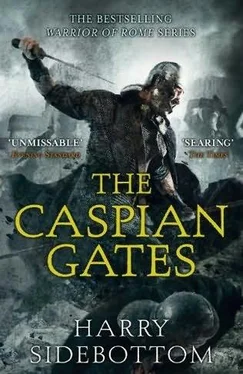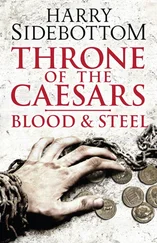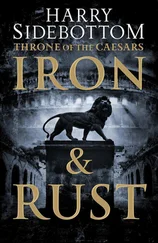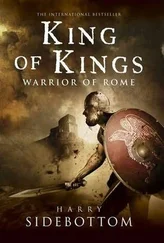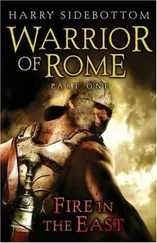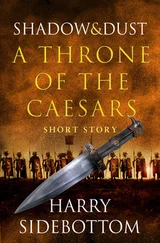Harry Sidebottom - The Caspian Gates
Здесь есть возможность читать онлайн «Harry Sidebottom - The Caspian Gates» весь текст электронной книги совершенно бесплатно (целиком полную версию без сокращений). В некоторых случаях можно слушать аудио, скачать через торрент в формате fb2 и присутствует краткое содержание. Жанр: Исторические любовные романы, на английском языке. Описание произведения, (предисловие) а так же отзывы посетителей доступны на портале библиотеки ЛибКат.
- Название:The Caspian Gates
- Автор:
- Жанр:
- Год:неизвестен
- ISBN:нет данных
- Рейтинг книги:3 / 5. Голосов: 1
-
Избранное:Добавить в избранное
- Отзывы:
-
Ваша оценка:
- 60
- 1
- 2
- 3
- 4
- 5
The Caspian Gates: краткое содержание, описание и аннотация
Предлагаем к чтению аннотацию, описание, краткое содержание или предисловие (зависит от того, что написал сам автор книги «The Caspian Gates»). Если вы не нашли необходимую информацию о книге — напишите в комментариях, мы постараемся отыскать её.
The Caspian Gates — читать онлайн бесплатно полную книгу (весь текст) целиком
Ниже представлен текст книги, разбитый по страницам. Система сохранения места последней прочитанной страницы, позволяет с удобством читать онлайн бесплатно книгу «The Caspian Gates», без необходимости каждый раз заново искать на чём Вы остановились. Поставьте закладку, и сможете в любой момент перейти на страницу, на которой закончили чтение.
Интервал:
Закладка:
The comites murmured their appreciation of his kingly vision.
‘But, Quirinius, can our fiscus afford such grandiose plans?’ Gallienus laughed, self-deprecatingly – if he had not been an emperor.
The a Rationibus, in charge of the finances of the imperium, did not hestitate. ‘Celebrating your maiestas is without price and, as you know, Dominus, plans are in hand to debase the precious metal in the coinage again. It will be a few months before the merchants catch up.’
‘Things must be done open-handedly, even if the fiscus is short.’ Gallienus was quite serious now. ‘We cannot ever appear short of money, or our enemies would take heart.’
Rufinus cleared his throat. ‘The confiscated estates of the recent round of deluded traitors, and those of their families, can be sold. Celsus in Africa, Ingenuus and Regalianus on the Danube, Valens and Piso in Greece, the Macriani in the east – they were all rich men, with rich friends.’
‘The wages of treachery,’ nodded Gallienus. Perhaps Rufinus still had some usefulness yet as the spymaster in charge of the frumentarii .
A slave glided up to the ab Admissionibus and whispered in his ear. Hermianus rose to his feet and announced that, if the most noble emperor had finished his lunch, the leading men of the polis of Byzantium were awaiting him in the hippodrome; almost all the members of the Boule had been rounded up.
The councillors of Byzantium, a hundred and fifty or so of them, were standing in a ragged line on the chariot-racing track. They were surrounded by soldiers. All the members of the Boule looked terrified. They were right to be. The previous year, Byzantium had joined the wrong side in a civil war. When the advance guard of the armies of the Macriani arrived, the city had opened its gates. That need not have been fatal. Many cities had done the same. Those cities were now paying reparations to the fiscus of Gallienus set at two to four times the contributions previously extracted by the pretenders. A punishment as mild as potential financial ruin was not a likely option for Byzantium.
When news had come from the west that both the young usurper Macrianus and his father, the sinister Macrianus the Lame, the real power behind the revolt, had been killed outside Serdica, the city of Byzantium had held fast in the faction of the remaining usurper, the young Quietus, who was far away in Syria. This misguided adherence had not been removed either by the arrival before the Byzantine walls of an imperial force commanded by the African general Memor, or by the setting up in front of the main Thracian Gates of the severed heads of the Macriani, father and son. By the time word came that Quietus had been killed in Emesa, it was too late. The siege had begun. By the usage of war, when the first ram touched the walls, the only surrender could be unconditional; all the men could be killed; the women and children sold into slavery. Some held they could be killed too.
The siege had continued into the winter. Gallienus had sent two more of his protectores, the famed siege engineers Bonitus and Celer. It had not appreciably hastened things. Byzantium was rich, well supplied. It occupied a very strong position. It was surrounded by the sea on three sides; the Bosphorus, fast-flowing, to the east. There was high ground for its acropolis. To the west, its land walls were substantial, watched over by tall towers, well equipped with torsion artillery.
The wealth of Byzantium and the strength of its position had long fed the contumacy of the city. Two generations earlier, the polis had defied the emperor Septimius Severus and the might of the whole empire for three years. It looked fit to do the same again. The siege had dragged into the spring. The birds had long since picked the skulls of the Macriani clean.
Gallienus himself had broken the deadlock. He had arrived suddenly from the west, accompanied only by the cavalry of the guard. After a herald had arranged a truce, he had ridden alone up to the Thracian Gates. He had not offered terms, but had sworn he would prove more merciful than had Septimius Severus.
The latter emperor had ordered many killed, sections of the walls and most public buildings razed, and had reduced Byzantium to the legal status of a village ruled by its neighbour and rival polis of Perinthus. After a brief debate, to try to avoid such things happening again, the Boule had recommended that the people throw themselves on the clementia of Gallienus. Now, getting to their feet after performing adoration, sweating as the early-afternoon sun beat down in the hippodrome, the councillors were more than anxious about whether they had made a good decision.
‘Those two in the middle,’ Achilleus, the a Memoria, whispered to his emperor, ‘the ones standing a pace in front of the others.’
Gallienus regarded the men. Both were tall, with full but neat beards and heads of hair. They were clad in Hellenic himation and tunic, right arms decorously wrapped in the cloaks. They clung to their self-control for dear life: only their eyes – ever moving, circling – betrayed them.
In the morning, the consilium had expressed the view that Byzantium was too venerable and too important, both as a crossing point between Europe and Asia and as a bulwark against the barbarians from the Black Sea, to be destroyed. A swingeing fine and the execution of the ringleaders should suffice. These two men, Cleodamus and Athenaeus, had led the defence. They should die. The deaths of these two rich, honourable and potent men would cow the others. Their estates would enrich the imperial fiscus.
Gallienus looked at them steadily. One word, and they were dead. He felt the intoxicating rush of power. One word, and all the members of the Boule were dead; one word, and life was ended for any he chose of his own comites. Such god-like power was dangerous. Of course, every slave owner had the power of life and death. But that was over instruments with voices, of little more significance than drowning a cat. These were free men. His was the power of an Olympian. It was not to be used without consideration. Even Hercules, Gallienus’s particular divine companion, had often been too hasty. The sack of sacred Delphi, the killing of his guest Iphitus: in both, Hercules had been too hasty. Gallienus would learn from the errors of his immortal friend: nothing hasty, nothing ill judged.
Shifting his attention beyond Cleodamus and Athenaeus, Gallienus considered the other councillors. All were rich and honourable, but lacking the drive and initiative to head the defence of their own city; followers not leaders. When the bad times came, as they would when the tribes from the north attacked again, who would be more use?
‘From that bald head, to that one over there.’ Gallienus’s pointing finger swept along about twenty of the main line of councillors. ‘Kill them all. They are guilty of maiestas, their entire estates are confiscated. Proceed with the executions.’
Soldiers herded the condemned men out from the spared. Some begged, some cried, a few went with dignity. One by one, they were forced to their knees. Steel shone bright in the sun. The sickening sounds of the blows; the blood spraying very red in the air then, dulled, draining into the soiled sand.
There had been no reaction from the comites behind the emperor. They knew as well as Gallienus that while an emperor was expected to listen to the views of his consilium, he was in no way bound to follow them. The will of the emperor was law; arbitrary and untrammelled. It always had been thus, and so it would be for ever.
IV
The soft, blue sweetness of a Mediterranean spring night hid a multitude of things. Ballista stood on the terrace of the governor’s palace, high on the slope of the central mount of Ephesus. Darkness had not long fallen. The offshore breeze hissed through the ornamental shrubs and the scrub of the hillside; the gubernatorial and the unclaimed – the wind made no differentiation.
Читать дальшеИнтервал:
Закладка:
Похожие книги на «The Caspian Gates»
Представляем Вашему вниманию похожие книги на «The Caspian Gates» списком для выбора. Мы отобрали схожую по названию и смыслу литературу в надежде предоставить читателям больше вариантов отыскать новые, интересные, ещё непрочитанные произведения.
Обсуждение, отзывы о книге «The Caspian Gates» и просто собственные мнения читателей. Оставьте ваши комментарии, напишите, что Вы думаете о произведении, его смысле или главных героях. Укажите что конкретно понравилось, а что нет, и почему Вы так считаете.
